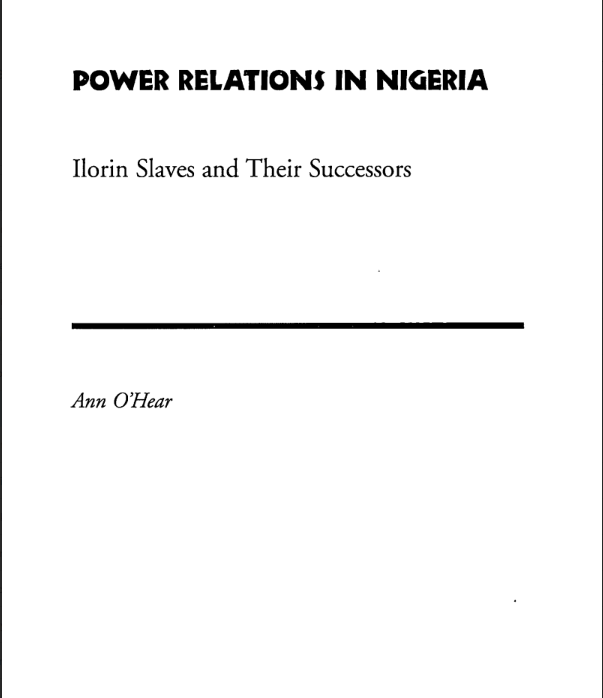
Power Relations in Nigeria Ilorin Slaves and Their Successors by Ann OHear
Author: ANN O'HEAR Category: History, Politics More DetailsThis study provides for the first time a detailed examination of slavery and its legacy in the Yoruba and incompletely Islamized periphery of the Sokoto Caliphate and (later) of Northern Nigeria. It offers a contribution to the hitherto limited historiography of slavery in Yorubaland, and it extends the work of Paul Lovejoy and Jan Hogendorn on the large scale and long survival of slavery in the Sokoto Caliphate. While Lovejoy and Hogendorn cover the caliphate in general, this study focuses on Ilorin, a city and emir- ate in northwestern Yorubaland, on the caliphates southern fringe. Further, it links the story of the decline of slavery (in the early twentieth century, under British rule) with the emergence of a small-scale peasantry as the successor group to the slaves, and follows this peasantry’s fortunes into the late-colonial and even post-independence periods. It focuses on resistance and accommodation, using these concepts to illuminate the evolution of power relations between the slaves and their successors on the one hand, and their masters and controllers in the Ilorin elite on the other. Various themes emerge, such as the extent of continuity and change in these relations, and in the manifestations of resistance and accommodation by the slaves and their successors; and the role of Islam in these relations.
